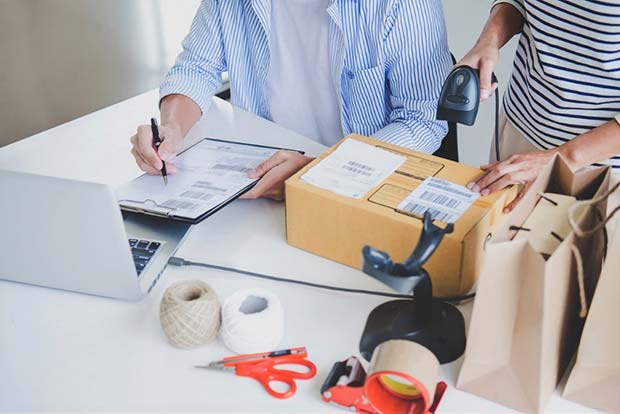“Take, make, waste” is no longer a viable way of operating in the fast-moving-consumer-goods (FMCG) industry. Billions of clothing items find their way into landfills every year, plastic bottles are polluting the oceans and electronic waste is harmful. The circular economy is a system which regenerates itself in a closed loop.

Products are used, recovered, repaired and used as input to more products and not disposed of as waste. Achieving, or at least getting closer to, this situation is a mission being pursued by most of the leading global manufacturers and retailers including LÓreal, Unilever, The Coca- Cola Company, Veolia and Dell.
Levi Strauss is an example of a clothing company that is successfully employing circular economy principles. Their vision is to find practical and creative ways to extend the life of jeans, repurpose them, and/or recover and reprocess the fibres into raw material for the next generation of Levi’s. Their stores accept old clothes and shoes of any brand, which the company collects and repurposes or recycles. Dell has implemented a major circular economy redesign across its entire business and now collects damaged and used products to reprocess plastics and use them in the manufacture of new products.
The circular economy presents unique challenges for ‘consumer packaged goods’ companies. The Coca-Cola Company produces more than 3,600 different beverage offerings, each requires some form of package in order to be safely delivered to consumers. Nearly all of their packaging has value as recycled material. The introduction of the recyclable PET bottle in the late 1970s and the development of the surrounding collection, sorting and recycling infrastructure has led to the creation of an industry standard.
Reverse logistics and the circular economy Reverse logistics involves the collection of goods, transportation to a given location and sorting prior to remanufacturing, refurbishing, reusing or recycling or failing that, disposal. It plays an important role in the process of companies aiming to transition to a circular economy. Before setting up reverse flows, companies need to evaluate the supply chain within which the business operates. Companies may face hurdles such as complying with policies regulating the transport of waste as well as the unevenness of quality and quantity in return loads. There are cost challenges due to:
• wide geographic dispersion of returns
• inefficiencies due to lack of scale
• sorting is labour intensive and requires space Heineken’s distribution company in France installed equipment at its customer sites that crushes and stores up to 20 kg of glass. This reduces space required for empty bottles by 80%, lowers transportation costs, and minimises health and safety risks. Scale is important. The good news is that reverse logistics are not subject to the same tight timing, security and safety constraints as forward logistics.
Involving consumers
Consumers have grown increasingly comfortable with recycling. They also are used to returning goods, especially in e-commerce transactions. Companies can use an incentive to get users to return end-of-use and end-of-life products by exchanging empty containers for new products. These empty containers are then reused or recycled into new ones. Over and above the financial benefit, it sends a message to customers and competitors that the brand is reducing waste and cares about the environment.
Using new technologies
New technologies such as robotics and artificial intelligence (AI) can help firms manage returns. According to Brightstar which delivers one in every 23 mobile phones sold worldwide and runs the world’s largest device leasing system, the market for used mobile phones is now worth $17bn. 10% of higher-end devices will have three or more owners. Brightstar processes returned used phones more efficiently by teaching machines to determine the condition of the phones, replacing many human jobs in processing.
Global initiatives
The Ellen MacArthur Foundation works on a strategic level with influential global businesses to demonstrate circular innovation at scale. The Coca-Cola Company was among the first to join the Foundation’s program that brings together a network of 100 leading companies to facilitate development and commitment to new circular economy projects. According to the Foundation, $3.7 trillion worth of material goes into the FMCG sector globally each year and only 20% of that volume is usefully recovered.
Closing the loop
Businesses should evaluate their returns operations and devise a suitable reverse logistics strategy. Companies wishing to improve profitability need to give just as much thought into reverse logistics as they do into their forward operations. This includes looking into the product design to make sure that products and materials can be reused, remanufactured, recycled, or repaired. Organizations that dedicate resources to the function can reap great benefits.
THE SUPPLY CHAIN CONSULTING GROUP LTD
Tel: 01926 430 883
Email: info@sccg.ltd.com




Comments are closed.